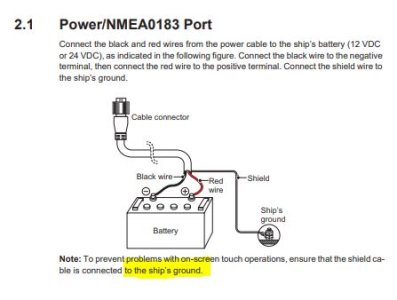Recently noticed the FishFinder screen on my 1971 is flickering pretty consistently.
It’s pretty noticeable. Of special note, the GPS/Map view does not flicker. It’s only the fishfinder view that flickers. It is paired with a TM185M and the unit is set to B175M as instructed by Furuno.
I have verified connections are solid and voltage is steady. Ground is good.
I’m at a loss because it only flickers on the fishfinder screen. Makes me think the transducer is causing it.
Any help would be appreciated.
It’s pretty noticeable. Of special note, the GPS/Map view does not flicker. It’s only the fishfinder view that flickers. It is paired with a TM185M and the unit is set to B175M as instructed by Furuno.
I have verified connections are solid and voltage is steady. Ground is good.
I’m at a loss because it only flickers on the fishfinder screen. Makes me think the transducer is causing it.
Any help would be appreciated.



